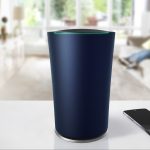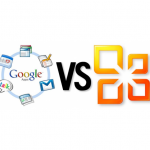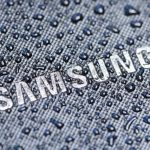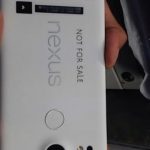Google announces $200 OnHub wireless router -- but why?

Wireless routers are rather ubiquitous nowadays. Many homes and businesses have them installed, making connecting to the internet a fairly mindless affair. They have even dropped in price -- a solid router can be had for under $50, while some ISPs give them to users at no charge.
With that said, why the heck would Google expect people to pay $200 for a rather basic router? Today, the search giant announces OnHub -- a run-of-the-mill TP-Link router, without external antennas, for an insanely high price. Don't get me wrong, some routers are worthy of the money, but surely not the Amazon Echo design-inspired, OnHub.
Google expands Android One into Africa

Android One is slowly but surely making its way to major emerging markets across the globe. The latest expansion sees the program being introduced today in Africa. For the moment there is only one Android One smartphone available to local consumers, which retails for roughly $87.
There is huge growth potential for Google and Android One in Africa, as Internet use remains relatively low on the continent. A study by Internet Society estimates that, by the end of 2015, 23 percent of mobile phones will be able to have Internet access, a figure which is extremely low when compared to Asia, Europe or North America. So it is very important for Google to get Android One right in Africa.
Is this the new Google Nexus 5?
Google Hangouts finally gets a webpage, so I switched from Chrome to Firefox

Google Hangouts is my choice for a communication service, so even though I prefer Firefox, I've been using Chrome lately since it worked better with it. Shockingly, the service did not have a dedicated web page. Yeah, Google touts the open web and web apps for its Chromebooks, but Hangouts was sort of missing from the equation.
Guess what? Today, this changes. Yeah, Google officially launches a Hangouts webpage and it is pretty damn good. It is so good, in fact, that I uninstalled the Chrome browser today and went back to Firefox full time -- I had no good reason to stay on Google's web browser.
Google confirms the next version of Android is Marshmallow

Although Google has been dropping some very heavy hints lately, we didn’t know exactly what sweet treat the next version of its Android operating system would be named after.
Well, if you were hoping to place a bet on "M&Ms" (or go for a truly outside flutter on "Maltodextrin"), you’re too late I’m afraid, and also lucky as you’d have lost your stake. M, Google says, is for Marshmallow.
How Google is accidentally making money from other 'Alphabet' firms

Google is an original name. It’s based on the word googol (1.0 × 10100), but with a different spelling. Alphabet, the name of the tech giant’s new parent company, is far from unique, however. There are hundreds of other "alphabet"-named companies right across the globe. The best known of these being the BMW subsidiary Alphabet International GmbH which owns both www.alphabet.com and www.alphabet.co.uk.
BMW is currently looking into whether Google has committed any form of trademark infringement with its new company name and obviously has the financial clout to take things to court if it feels it has a case. But BWM isn’t the only example of a company with Alphabet in its name, and some -- like Alphabet Signs based in rural Pennsylvania -- find themselves in the weird (and painful) position of paying Google for searches that have nothing to do with them.
Office 365 vs Google Apps: Who wins on pricing? (Part 1 of 4)

If there's one common request I get from readers via email, it's that they want an updated deep dive on my thoughts regarding the whole Office 365 vs Google Apps debate. It's a topic I've written about on numerous occasions in the past -- dissecting the facts, wading through the FUD, and piecing together my honest opinion on who comes out on top.
But it has been years since I dove into the crux of the debate, honing in on why one suite beats another in the important aspects that set them apart. And in the world of IT, years is an eternity.
Confirmed: Apple is working on a self-driving car to rival Google

Apple's Project Titan is not only real, but the self-driving car is further developed than previously thought. Documents obtained by The Guardian show that the company is currently looking for secure locations in the San Francisco bay area that could be used to test the vehicle.
The newspaper made a public records act request to unearth correspondence that revealed that the Special Project group from Apple met with representatives from the GoMentum Station. This former naval base is in the process of being transformed into test track for self-driving vehicles.
Google teases with Android M name video

You might still be waiting for Lollipop to limp onto your handset, but just around the corner is Android M. We already know quite a bit about what to expect from the next version of Android -- you can even try out the Android M Developer Preview if you want -- but there's one thing that's far from clear: what is it going to be called.
There have been all sort of guesses since the codename was revealed by Google and now the company (Google, Alphabet... call it what you will...) is starting to tease us with name suggestions. There's also a video that offers a 'musical hint' at the name.
Does diversity in tech actually matter?

Diversity has become something of a buzzword in tech, and it's one that companies are only too keen to bandy about at every opportunity. The likes of Apple, Google, Facebook, and Amazon are eager to demonstrate how diverse a workforce they have built up -- but the fact of the matter is that they have all failed abysmally.
This much we know. We've seen that Facebook's workface is far from diverse, Amazon is about as white and male as it gets, and that Apple wants people to believe it's doing everything it can to foster greater diversity. Its latest report shows that the number of female, black, and Hispanic employees has increased but Tim Cook wants to do more. But the big question is: does diversity matter?
Ingress and Field Trip developer Niantic Labs is Alphabet's first independent spin-off

In the post announcing Alphabet, CEO Larry Page said Google would be "slimmed down" to focus on the goal of collecting all the world’s information. The first spin-off from Google to independent company will be Niantic Labs, the developers of Ingress and Field Trip.
The augmented reality gaming startup launched Ingress a few years ago, an augmented reality discovery game built on top of Google Maps. It is free and has over 12 million players, who try to track down gems around the city. On top of the two apps, Niantic Labs is also working on a TV show inspired by Ingress.
Samsung Pay launches in Korea in August, US in September

The main thrust of Samsung's Galaxy Unpacked event was to launch the Galaxy Note 5 and Galaxy S6 Edge+, but the company also provided some details about Samsung Pay. With so many similarly-specced smartphones vying for attention, each manufacturer needs to offer something slightly different, and Samsung is hoping that a new digital payment system will prove attractive to people.
Going head to head with Android Pay and Apple Pay is Samsung Pay. As well as offering compatibility with the newly announced Galaxy Note 5 and Galaxy S6 Edge+, Samsung's payment system is supported by many of its older handsets. It will launch in its home country of Korea on August 20, and will spread to the US at the end of September. So why pick this payment system over the alternatives?
Android owners now more loyal to their OS than iPhone users

The loyalty of Android users to their mobile OS has increased slightly in comparison to the steadfastness of iOS devotees, according to a new piece of research.
The report from Consumer Intelligence Research Partners (CIRP), which was spotted by CNET, took in the opinions of some 4,000 US consumers.
Open your mind and visit Google's Android Experiments website

Technology can be cold and harsh -- circuit boards, processors, and programming languages. For some, there is beauty in the technology itself. For other people, the beauty is found in what is created using that technology.
Android is the most popular Linux-based operating system of all time -- a great choice for creative developers. It took the scary Linux world of command lines and elitist support communities and delivered something normal human beings could use. Today, Google launches AndroidExperiments.com -- a site dedicated to projects and experiments that utilize the mobile operating system. Consider it a museum of modern art, but for Android apps.
Alphabet's ABC is Google's XYZ

I predict that the innovation of the year will go, not to a tech product, but to Google's creation of a new company: Alphabet. The search and information giant that disrupts so many other companies on and off the Internet essentially disrupts itself. By doing so—divesting the core, established business from future research and inventions—cofounders Larry Page and Sergey Brin unshackle weights dragging growth.
To recap: Page announced the dramatic change after the market closed yesterday. Google becomes secondary to Alphabet, which will hold a collection of related entities. Page hands over Google chief executive reigns to Sundar Pichai, while becoming CEO of the new entity. Brin is president. Can we call him letterhead instead of figurehead? :)
Recent Headlines
Most Commented Stories
This updated Windows 11 clone is Linux underneath and makes your old PC run faster -- get it now
The brilliant Windows 12 is everything Windows 11 isn't -- and the Microsoft OS we deserve
Microsoft releases Windows 11 25H2 ISOs
Microsoft is rolling out Windows 11 25H2
BetaNews, your source for breaking tech news, reviews, and in-depth reporting since 1998.
© 1998-2025 BetaNews, Inc. All Rights Reserved. About Us - Privacy Policy - Cookie Policy - Sitemap.
